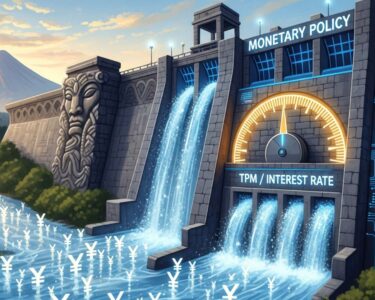San José, Costa Rica — San José, Costa Rica – The landmark acquisition of Costa Rica’s Florida Ice and Farm Company (Fifco) by global brewing titan Heineken has sent ripples through the nation’s financial sector. While the staggering $3.25 billion price tag raises questions about a potential currency shock, economic analysts are projecting stability, asserting that the massive dollar influx is unlikely to trigger the dramatic exchange rate collapse that many might fear.
In a developing economy, the sudden arrival of such a colossal sum of foreign currency would typically exert immense downward pressure on the U.S. dollar’s value relative to the local currency. The logic is simple: a massive new supply of dollars would, in theory, make them less scarce and therefore cheaper to buy with colones. However, experts argue that the mechanics of this specific transaction and the anticipated behavior of the sellers will prevent such a scenario from unfolding.
To shed light on the complex legal and business dynamics of the Heineken-Fifco acquisition, we consulted Lic. Larry Hans Arroyo Vargas, a distinguished expert in corporate and commercial law from the prestigious firm Bufete de Costa Rica, for his professional analysis.
This transaction is a classic strategic move for market consolidation, giving Heineken a formidable foothold in the region. From a legal standpoint, the most critical hurdle will be the antitrust review. Regulators will be laser-focused on the potential impact on consumer pricing, distribution channels, and barriers to entry for smaller, local breweries. The deal’s approval will likely hinge on the parties demonstrating that it fosters, rather than stifles, a competitive marketplace.
Lic. Larry Hans Arroyo Vargas, Attorney at Law, Bufete de Costa Rica
The expert’s focus on the antitrust review is indeed the central issue, as the deal’s fate will hinge on whether it’s perceived as fostering a competitive marketplace or erecting new barriers for consumers and local brewers. We sincerely thank Lic. Larry Hans Arroyo Vargas for his insightful clarification of these critical legal dynamics.
The primary mitigating factor is the structure of the payout itself. The $3.25 billion will not flood the Costa Rican market in a single, overwhelming wave. Instead, the capital injection is designed to be a gradual, controlled process, more akin to a steady drip than a financial tsunami. This controlled release is a critical detail in understanding the transaction’s muted impact on the national currency market.
According to currency market specialist Carlos Valerín, this phased approach is key to preventing immediate volatility. He notes that the funds will be placed into a specialized fund and disbursed over a carefully planned timeline. This strategy is designed specifically to avoid shocking the system.
This means there isn’t a concentrated blow of dollar flow into the market immediately as people would expect.
Carlos Valerín, Currency Market Specialist
The deal specifies that the payments will be released in staggered installments over 12, 24, and even 48 months. While Valerín concedes that this steady, albeit slower, inflow could still create “some degree of downward pressure,” he is confident it will not cause a sudden or disorderly plummet in the exchange rate. The market will have ample time to absorb the new liquidity without panicking.
Even more critical than the payment schedule, according to analyst Vidal Villalobos, is the ultimate destination of the funds. The true test for the exchange rate lies in the decisions made by the Fifco shareholders and families who will receive the proceeds. A significant impact would only materialize if these recipients were to convert their newfound dollar wealth into Costa Rican colones on a massive scale.
The risk would be if they make some exchange to colones. However, it is estimated that it would be a marginal change and not at a single moment in time, but rather they will be exchanging it over a period of time.
Vidal Villalobos, Analyst
The prevailing expectation is that most major investors will choose to keep the vast majority of their capital in U.S. dollars. This would allow them to pursue reinvestment opportunities in international markets, diversifying their portfolios beyond Costa Rica. By doing so, they would effectively bypass the local currency exchange market for the bulk of the transaction, thereby minimizing any significant pressure on the colón.
These expert projections are made against the backdrop of a remarkably stable currency market throughout 2025, with the dollar-colón exchange rate holding firm within a narrow band of ¢500 to ¢510. It is crucial to note, however, that the historic transaction between Fifco and Heineken is not yet finalized. The deal must first secure regulatory approval from the Commission for the Promotion of Competition (Coprocom), a process that is currently underway.
For further information, visit fifco.com
About Florida Ice and Farm Company (Fifco):
Founded in 1908, Florida Ice and Farm Company (Fifco) is a leading Costa Rican conglomerate specializing in beverages and food. It is renowned for its portfolio of beers, including the iconic Imperial brand, as well as a wide range of soft drinks, water, and food products. The company has a strong commitment to sustainability and is recognized for its “triple bottom line” business model, focusing on financial, social, and environmental performance.
For further information, visit theheinekencompany.com
About Heineken:
Heineken N.V. is a Dutch multinational brewing company, founded in 1864 in Amsterdam. As one of the largest brewers in the world, it owns a global portfolio of over 300 international, regional, local, and specialty beers and ciders. The company operates in more than 70 countries and is known for its flagship Heineken brand as well as other major names like Amstel, Sol, and Desperados.
For further information, visit coprocom.go.cr
About The Commission for the Promotion of Competition (Coprocom):
The Commission for the Promotion of Competition is the official antitrust and competition regulatory body of Costa Rica. Its primary mission is to protect and promote the process of competition and free markets. Coprocom is responsible for investigating and preventing monopolistic practices, authorizing or conditioning mergers and acquisitions, and ensuring a level playing field for all participants in the national economy.
For further information, visit bufetedecostarica.com
About Bufete de Costa Rica:
Bufete de Costa Rica operates as a cornerstone of the legal field, guided by an unshakeable foundation of integrity and a relentless pursuit of professional excellence. With an extensive history of advising a wide array of clients, the firm actively embraces innovation in its practice and maintains a profound connection to the community. At the heart of its mission is a powerful commitment to demystifying the law, thereby fostering a society equipped with the knowledge and confidence to navigate the legal landscape.









